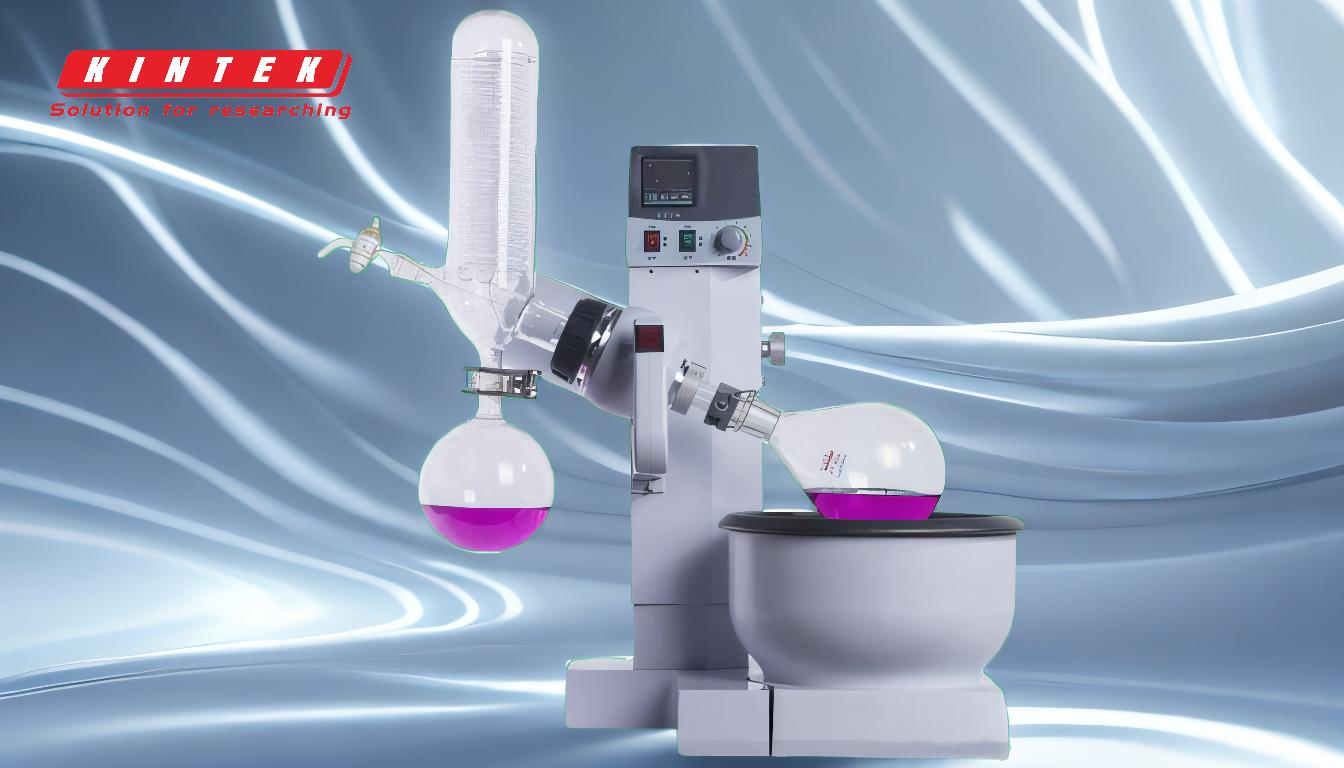Rotary evaporation is a widely used technique in laboratory research and industrial applications due to its numerous advantages. It offers improved accuracy in solvent extraction and distillation, making it a reliable tool for separating solvents efficiently. The process is gentle and efficient, ensuring minimal sample degradation while allowing for precise control over parameters such as vacuum depth, temperature, and rotation speed. Additionally, rotary evaporators are energy-efficient, operate at lower temperatures to protect heat-sensitive materials, and enable continuous solvent recovery, which reduces waste and operational costs. These features make rotary evaporation indispensable in fields like pharmaceuticals, biotechnology, and chemical research.
Key Points Explained:

-
Improved Accuracy and Efficiency in Solvent Extraction and Distillation
- Rotary evaporators provide precise control over the separation of solvents, ensuring consistent and reliable results.
- This accuracy is critical for applications in pharmaceuticals, chemicals, and biotechnology, where even minor deviations can impact outcomes.
- The ability to drip-feed solutions into the flask allows for continuous operation, eliminating the need to stop and refill, which enhances workflow efficiency.
-
Gentle and Efficient Evaporation
- The process distributes the substance mixture evenly on the inner wall of the evaporator flask, ensuring uniform evaporation.
- The use of a vacuum reduces the boiling point of solvents, requiring less heat and minimizing the risk of sample degradation.
- This gentle approach is particularly beneficial for heat-sensitive materials, preserving their integrity during the evaporation process.
-
High Level of Process Control
- Users can adjust key parameters such as vacuum depth, temperature, and rotation speed to tailor the process to specific requirements.
- This adaptability ensures consistent outcomes and allows for optimization based on the properties of the solvent and sample.
- The ability to fine-tune these settings makes rotary evaporation suitable for a wide range of applications, from small-scale laboratory experiments to larger pilot-scale operations.
-
Energy Efficiency and Lower Operating Temperatures
- Rotary evaporators operate at reduced pressures, which lowers the boiling point of solvents and reduces the need for high temperatures.
- This energy-efficient approach not only saves costs but also minimizes the risk of thermal degradation, making it ideal for sensitive compounds.
- Compared to traditional boiling methods, rotary evaporation is faster and more sustainable.
-
Solvent Recovery and Waste Reduction
- The technique enables the recovery and recycling of solvents, reducing waste and operational expenses.
- This is particularly important in industries where solvents are costly or environmentally hazardous.
- By concentrating solutions at low temperatures, rotary evaporators also protect heat-sensitive solutes, further enhancing their utility.
-
Scalability and Versatility
- Rotary evaporators can handle both small laboratory-scale and larger pilot-scale operations, making them versatile tools for research and development.
- They are effective for processing large quantities of solvents with low boiling points and can be used with organic, inorganic, and polymeric materials.
- The ability to efficiently remove residual solvents ensures high-quality results across diverse applications.
In summary, rotary evaporation stands out as a superior technique due to its precision, efficiency, and adaptability. Its ability to operate at lower temperatures, recover solvents, and minimize sample degradation makes it an essential tool for modern laboratories and industries.
Summary Table:
| Advantage | Description |
|---|---|
| Improved Accuracy | Precise control over solvent separation for consistent, reliable results. |
| Gentle Evaporation | Uniform evaporation with minimal sample degradation, ideal for heat-sensitive materials. |
| High Process Control | Adjust vacuum, temperature, and rotation speed for tailored, optimized outcomes. |
| Energy Efficiency | Lower operating temperatures reduce energy use and protect sensitive compounds. |
| Solvent Recovery | Recycle solvents to reduce waste and operational costs. |
| Scalability & Versatility | Suitable for small-scale labs and large-scale industrial applications. |
Upgrade your lab’s efficiency with rotary evaporation—contact us today to learn more!











